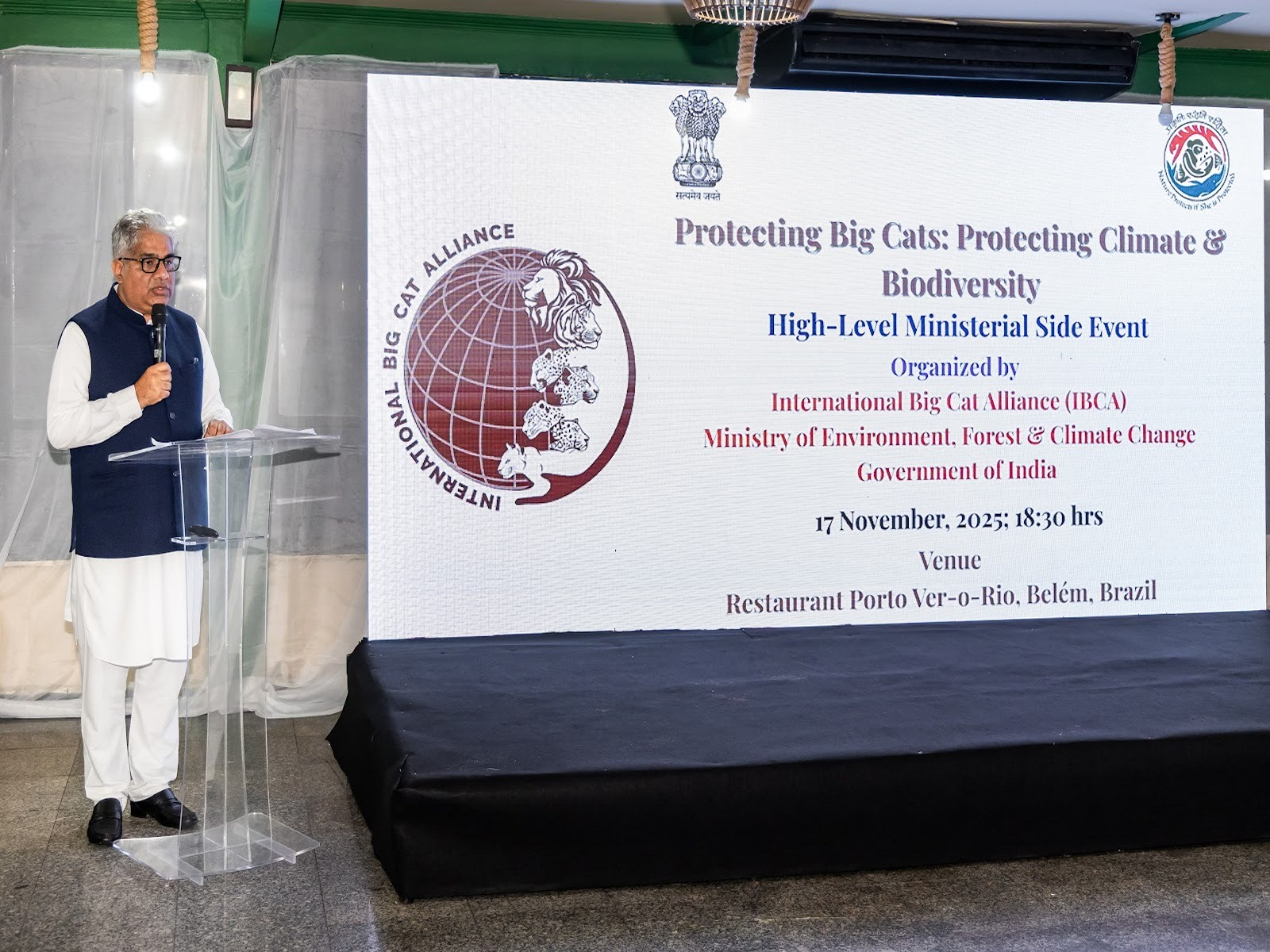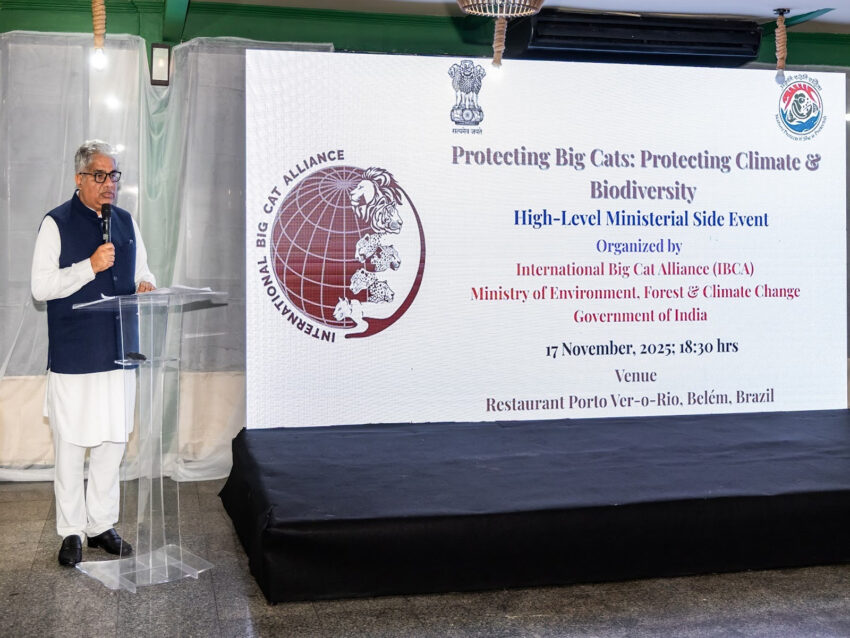
Belem [Brazil], November 18 (ANI): Union Minister for Environment, Forest and Climate Change, Bhupender Yadav, addressed the High-Level Ministerial Segment on the International Big Cat Alliance (IBCA) at UNFCCC CoP30 in Belem, Brazil, on Monday.
He called for renewed global cooperation to protect big cat species and their habitats as part of integrated climate and biodiversity action, according to the Ministry of Environment, Forest and Climate Change.
The event was graced by the Minister of Agriculture and Livestock, Government of Nepal, Madan Prasad Pariyar, Ministry of Environment, Forest and Climate Change stated.
The Minister thanked Brazil for hosting the event and noted the timeliness of the theme: “Protecting Big Cats, Protecting Climate and Biodiversity.” He further emphasised that ecological challenges today are deeply interconnected and require linked solutions.
Yadav noted that Big cats are apex predators, regulators of ecological balance, and sentinels of ecosystem health. “Where big cats thrive, forests are healthier, grasslands regenerate, water systems function, and carbon is stored efficiently in living landscapes”.
He also highlighted that declines in big cat populations lead to destabilised ecosystems, weakened resilience to climate change, and loss of natural carbon sinks.
Highlighting ‘Big Cat Landscapes’ as ‘Nature-Based Climate Solutions’, the Minister called for nature-based climate action to be central in future NDCs.
He further stated, “What we often call ‘wildlife conservation’ is, in fact, climate action in its most natural form”. He explained that conserving big cat landscapes directly strengthens carbon sequestration, watershed protection, disaster risk reduction, climate adaptation, and sustainable livelihoods.
The Minister highlighted IBCA’s potential to support countries through technical assistance, standardised tools, capacity building, south-south cooperation, and mobilisation of blended finance and biodiversity-carbon credit mechanisms.
Yadav informed the gathering about India’s role as home to five of the world’s seven big cat species and outlined the country’s major conservation successes. “India doubled its tiger population ahead of the target timeline, and our Asiatic lion population continues to grow well”, the Minister stated, as per the Ministry of Environment, Forest and Climate Change.
He noted that India has built one of the world’s most comprehensive wildlife databases through nationwide population assessments of tigers, lions, leopards and snow leopards, while expanding protected areas, securing corridors, and partnering with local communities for conservation and eco-based livelihoods.
Yadav highlighted the expanding membership of the International Big Cat Alliance, noting that IBCA is a vision of Prime Minister Narendra Modi, rooted in trust, mutual respect, and shared responsibility, based on the philosophy ‘One Earth, One World, One Future.’
He informed that 17 countries are formally associated with IBCA, with over 30 more expressing willingness to join.
The Minister emphasised that India’s ambition is to bring all big cat range countries and all nations that value biodiversity and climate security into the Alliance.
In this background, the Minister announced that the Government of India would be hosting a ‘Global Big Cats Summit’ in New Delhi in 2026.
He invited all range countries to share their experiences and strategies to save big cats and their habitats. He called upon all nations to join IBCA and strengthen global conservation partnerships.
Calling for Global Cooperation, the Minister stressed that the world stands at a moment of ecological realignment that requires unity and collaboration. “We must collaborate, not compete. We must find strength not in isolation, but in solidarity”, he stated.
He concluded with a strong message underlining the global significance of big cat conservation and said, “Protecting big cats is protecting our shared planet. Protecting big cats is protecting our future.” (ANI)


